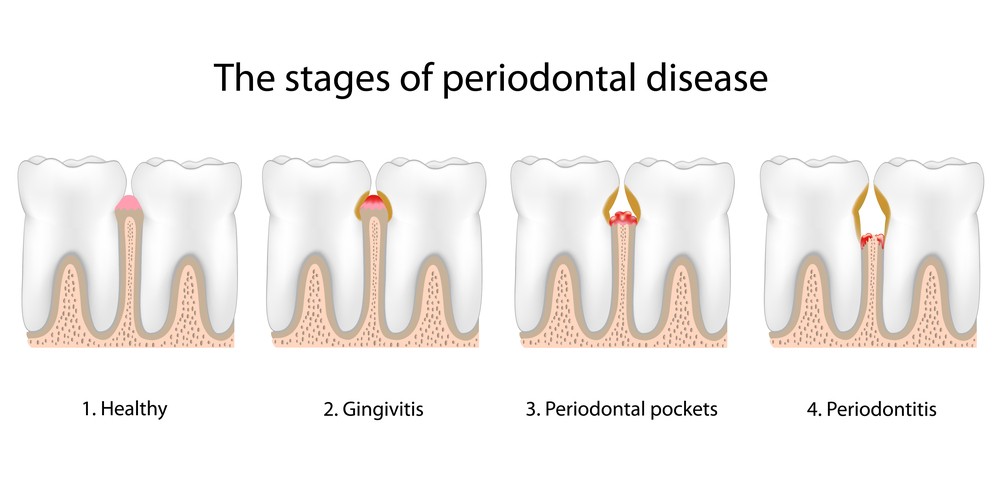Periodontal

Do Not Forget Your Gums!
Gum disease is usually caused by plaque, a sticky film of bacteria that constantly forms on teeth. If plaque is not removed with thorough daily brushing and cleaning between teeth, gums become irritated and inflamed. The irritated gum tissue can separate from the teeth and form spaces called pockets. Bacteria move into the pockets where they continue to promote irritation. Left untreated, the process can continue until the bone and other tooth-supporting tissues are destroyed. The early stage of periodontal disease is called gingivitis. It often results in gums that are red and swollen and may bleed easily.
Periodontal Therapy is a three-step process. First step is diagnosis. Periodontal disease is diagnosed by your dentist or dental hygienist during a periodontal examination. This type of exam should always be part of your regular dental check-up. Second step is treatment. Periodontal treatment methods depend upon the type and severity of the disease. Your dentist and dental hygienist will evaluate for periodontal disease and recommend the appropriate treatment. The third step is maintenance. It only takes twenty four hours for plaque that is not removed from your teeth to turn into calculus (tartar)! Daily home cleaning helps control plaque and tartar formation, but those hard to reach areas will always need special attention.
Periodontal disease is diagnosed by our team of dentist and dental hygienist as part of our thorough regular dental check-up.
A periodontal probe (small dental instrument) is gently used to measure the sulcus (pocket or space) between the tooth and the gums. The depth of a healthy sulcus measures three millimeters or less and does not bleed. The periodontal probe helps indicate if pockets are deeper than three millimeters. As periodontal disease progresses, the pockets usually get deeper.
Our dentist or hygienist will use pocket depths, amount of bleeding, inflammation, tooth mobility, etc., to make a diagnosis that will fall into a category below:
The Three Stages:
Gingivitis: Gingivitis is the first stage of periodontal disease. Plaque and its toxin by-products irritate the gums, making them tender, inflamed, and likely to bleed.
Periodontitis: Plaque hardens into calculus (tartar). As calculus and plaque continue to build up, the gums begin to recede from the teeth. Deeper pockets form between the gums and teeth and become filled with bacteria and pus. The gums become very irritated, inflamed, and bleed easily. Slight to moderate bone loss may be present.
Advanced Periodontitis: The teeth lose more support as the gums, bone, and periodontal ligament continue to be destroyed. Unless treated, the affected teeth will become very loose and may be lost. Generalized moderate to severe bone loss may be present.
We Can Help!
Our Expert Team at Coconut Grove Dentistry is here to make sure that you and your family will have healthy strong teeth and gums for life. If challenges do occur rest assured that our team has the experience and knowledge to get you smiling again fast!










